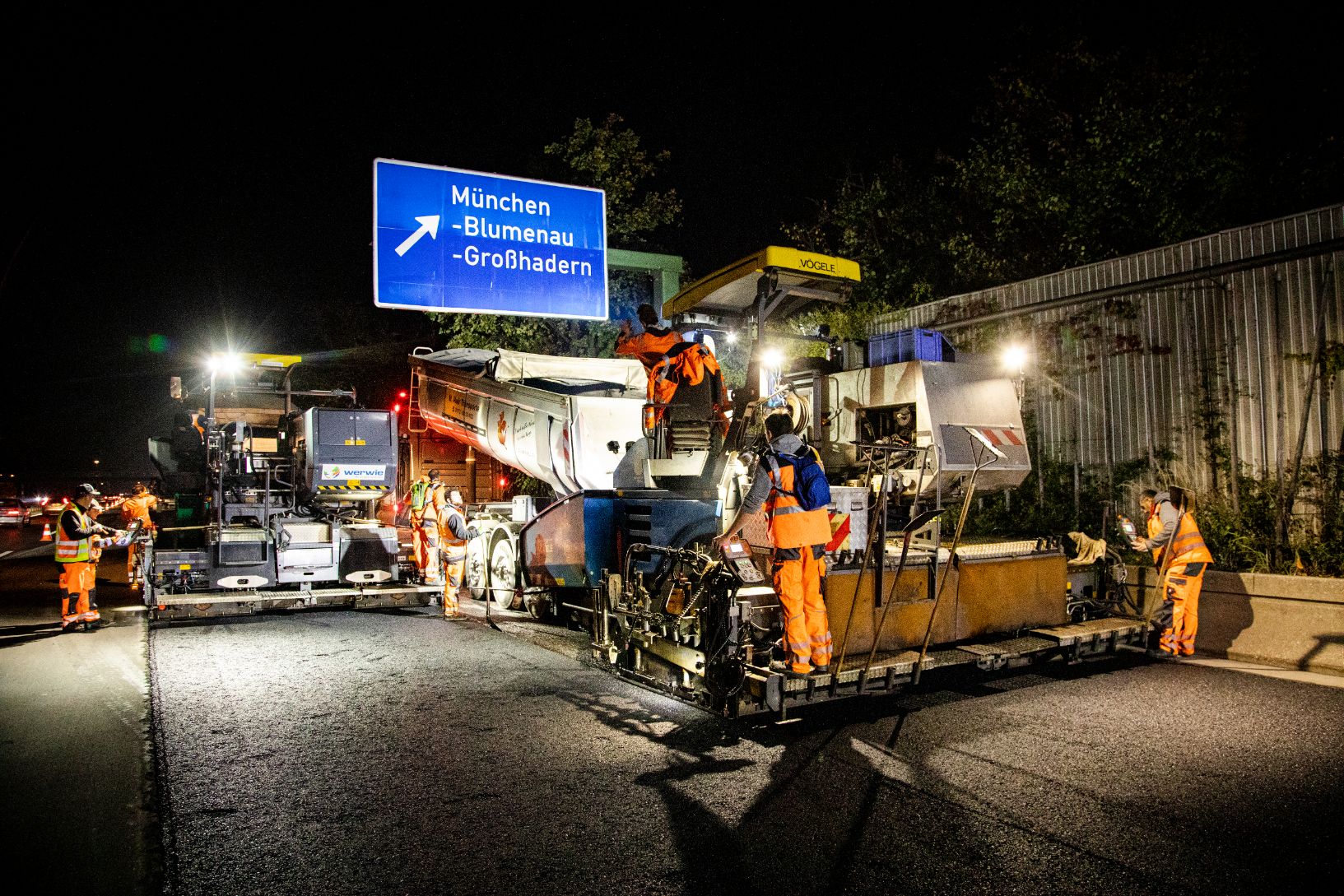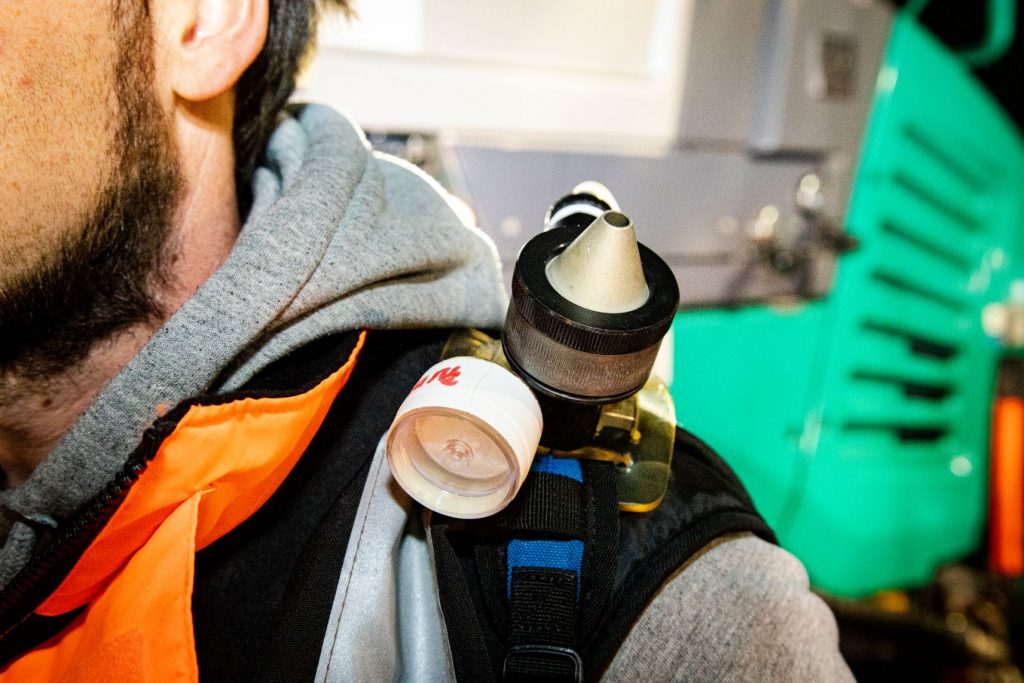BASF Tests B2Last Modifier on WMA Autobahn Project
BY BASF

Durability, occupational health and safety, environmental protection, and reduction of CO2 emissions play a significant role in formulating the right asphalt mix. BASF developed B2Last®, a low viscosity, liquid asphalt modification additive that supports these aspects, including temperature reduction during asphalt mixing and improved adhesion performance of the final mix.
In a recent paving trial on Autobahn 96 in Munich, Germany, 1,000 tons of B2Last-modified asphalt mix (two weight percent B2Last in the total mass of asphalt binder content and 50 percent reclaimed asphalt pavement (RAP) in the total mix) were laid on a 500-meter section at temperatures between 135 and 140°C. This represents a 25 to 30°C temperature reduction of standard mixing temperatures.

Minimal bitumen aerosol and vapors were collected / adsorbed on a glass fiber filter and AmberliteTM XAD-2, respectively (GGP sampler) during the paving trial.
Confirmed by third-party measurements, lower mixing temperatures can reduce bitumen emissions, i.e. bitumen aerosols and vapors, by up to 65 percent, which can result in a safer work environment. Moreover, the final mix, even with a 50 percent RAP content, was reported easy to manipulate at reduced asphalt mix temperatures.
Samples of the polymer-modified (polymer modified asphalt 25/55-55 RC was used for the reference track) and B2Last-modified asphalt mix passed numerous binder and asphalt performance tests at the same levels. Monitoring the behavior and performance of the new asphalt under long-term, normal use conditions is currently underway.
